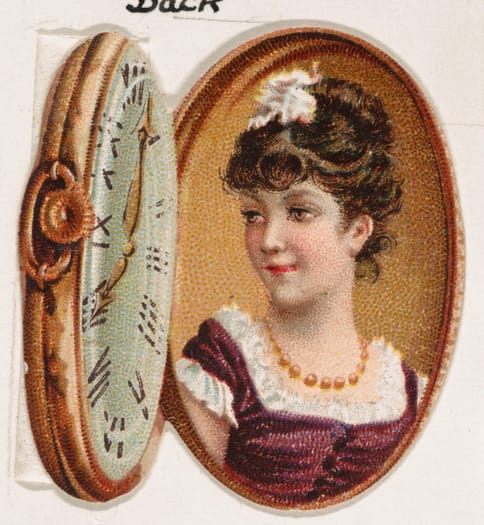This is Why Book Marketing Doesn't Work
"Work"

Hello friends!
I was chatting with Glynnis MacNicol—who’s newsletter you should read here and whose memoir about Paris, sex, and not giving a fuck you should definitely read—about marketing, work, results, and the fruits of our labor. About how you can do everything and get all the media attention and even sell lots of books, and there’s still a marker of success you don’t reach. For some it’s hitting the best seller list (or a best seller list) and for some it’s a big review or placement in Target or whatever. You can do all the things you’re supposed to do as an author and XYZ thing still won’t happen. We both wanted to figure out why.
Let me back up. We’ve talked in this newsletter before about how frustrating marketing your book can be. There’s no playbook and no one knows what works. What works for one book will not work for another book, even if you’re the author of both. Everyone says get a platform!!! but the how and why and when of that is also very ¯\_(ツ)_/¯ and those numbers don’t turn into book sales anyway so even more ¯\_(ツ)_/¯. But also? You still have to do it. You still have to market your own book, even though there’s a whole department doing that at your publisher and sometimes you can barely tell what they’ve done, are doing, or will do.
It also feels like publishers are leaving authors out to dry with marketing and publicity. No only do you have to do all this stuff, with little or no guidance, but you bear the brunt of it if nothing works. If you have a poor sales track record, it can make it harder to sell future books. This seems very, very unfair! And it is! But this unfairness doesn’t stem from the publisher gatekeeping the secret information of how to market a book and twiddling their mustaches. I don’t dedicate my life to defending the actions of multi-national corporations, but I will say that most publishing teams really do want your book to sell. It’s their job! That’s why they bought it in the first place.
There’s a lot of stuff in publishing that we don’t have. Enough payroll and employees to really dedicate the time necessary to make a book break out and sell a lot of copies. Data on what efforts lead to sales and what does not. Reliable trend forecasting (is that even a thing?) that helps publishers focus their lists and set authors up for success (or at least mitigate low sales). All the things we don’t have when it comes to marketing books supposes that there is something out there that would always lead to success. That there is a solid answer to the question how do we sell this book.
But there’s not! There are no answers! Publishers can usually only tell you what sold a book, not what will sell it. Books are not bottles of Coke. We can’t know that mysteries (/Cokes) sell more in the summer because everyone’s at the beach (/it’s hot outside) because your mystery (bottle of Coke) is not the same as that other mystery (/bottle of Coke) that came out last summer. It’s easy for Coke to say let’s advertise more when it’s hot outside because they’ve been selling the same damn thing for over a hundred years! All mysteries are not the same.
So what’s happening then? Why doesn’t marketing “work?” The efforts authors and publishers use to market and promote a book don’t “work” insofar as we can’t tie a specific action to actual book sales. We can’t say1 this magazine interview lead to 57 sales. This is annoying but think about it—when has that kind of marketing ever worked on you? We’re all savvy shoppers by now. We know when an ad or review or influencer campaign has been designed to present us with a thing someone wants us to buy. I clicked one ad for gold jewelry on Instagram a few weeks ago and now my ads are wall to wall gold jewelry. And I’m actually planning to buy something soon! But not from those ads. From a place I’ve already bought from that isn’t serving me any ads on Insta. All those marketing dollars are wasted, in terms of those companies getting me to buy something from them. But they were successful in making me aware of their brands, and maybe one day down the line, I might buy something from them or recommend them to someone else.
In book publishing, that’s successful marketing. Name recognition and awareness. People saying “oh, I’ve seen that book! I hear it’s good” is worth almost as much as a direct sale from an ad or post. All those posts and mentions and articles and reposts and whatever eventually add up to someone getting closer to buying your book when they’re just running into B&N last minute before their vacation or adding things to their cart. I know that publishing houses, and authors, don’t measure success this way, and that it’s mostly focused on sales right when the book comes out, but long term, this is actually what success means. Long term, it’s what keeps your career going.
When you’re faced with the confusing world of marketing your own book and you have no idea what to do, step back and think about what does and doesn’t work on you, the reader, the consumer, when it comes to buying a book. Focus your efforts there as much as you can, and deemphasize the things you don’t care about. It might not “work,” but it will make the work of marketing at least a little more clear.
OXOXOXOXO,
Kate
Unless it’s a tracked URL controlled by the publisher/author and we can see referral traffic but that doesn’t happen that much and also doesn’t account for the person who clicked the link, didn’t buy the book, but bought it two weeks later IRL at B&N. ↩




Comments ()